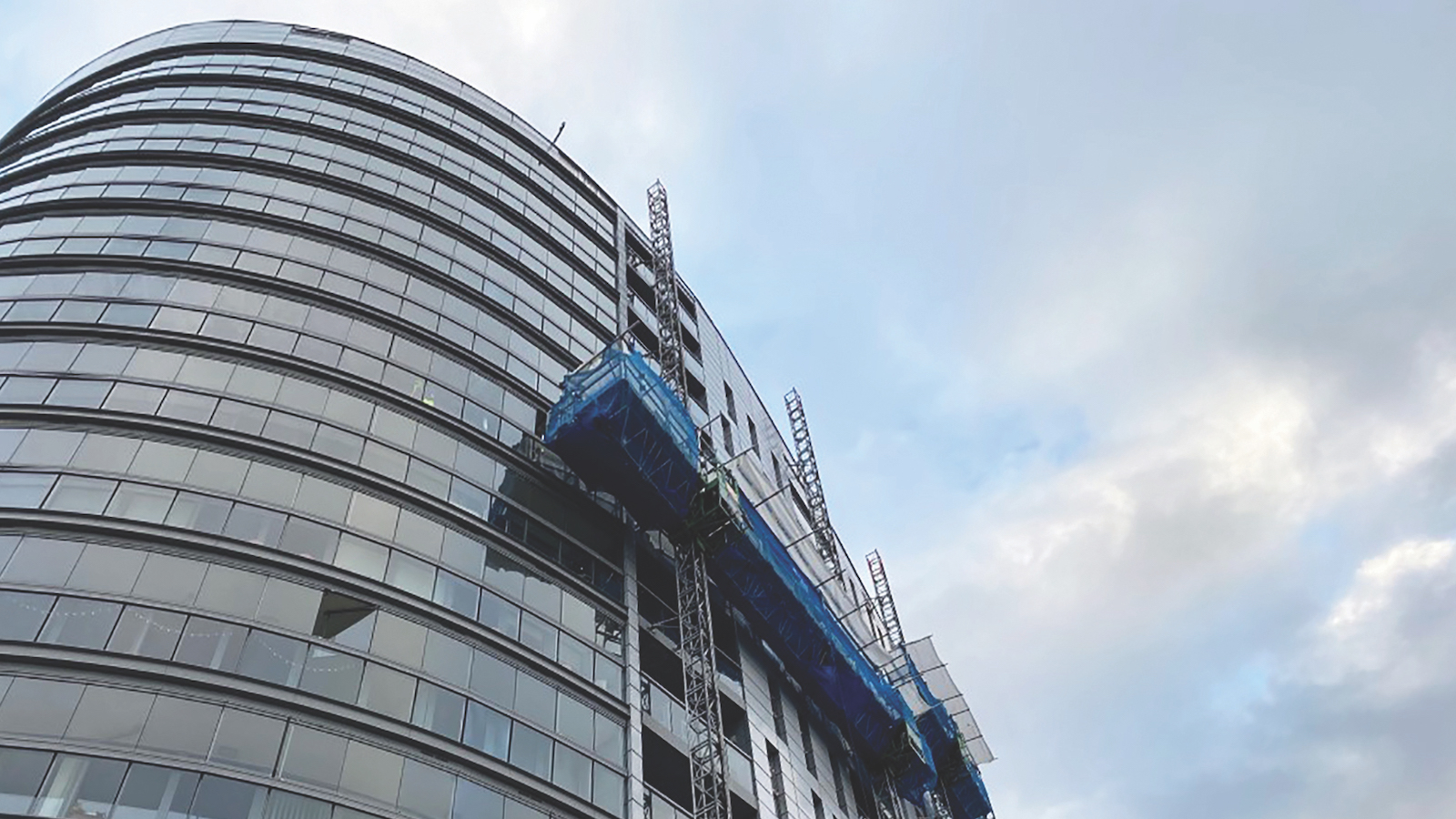
The first pilot of an independent cladding installer certification scheme has produced “positive evidence” of its effectiveness.
The scheme, which CM revealed last week has been developed by the National Federation of Roofing Contractors (NFRC) to address concerns about cladding remediation quality, showed operatives’ knowledge and understanding of rainscreen cladding systems increased by 11%.
It has been developed by the NFRC’s RoofCERT scheme, already in operation for roofers. The CITB-funded cladding project has been running for 12 months, with the aim of providing a “proof of concept” for an accreditation scheme.
The first pilot took place at the SPV Group’s training centre in Walsall in June, to test the theory that a trained supervisor model could lead to an improvement in the quality and safety of rainscreen cladding installation.
A new rainscreen cladding training course was developed as part of the pilot and produced an 11% improvement in the knowledge and understanding of the cladding operatives that took part.
Operatives were tested initially through a short multiple-choice knowledge test consisting of 35 questions to assess their current knowledge and understanding of rainscreen cladding. This was then followed by a mixture of classroom and practical training over two and a half days which included behavioural modules in addition to technical instruction. During the training, the trainer assessed each operative and provided feedback on areas where they performed the strongest as well as identifying areas in need of improvement.
At the end of the training the operatives took a follow-up test to see if their knowledge had improved. Further to this, of the five operatives who took the course, all agreed or strongly agreed that not only did they have a better understanding of rainscreen systems but that the practical training they received had improved their installation skills. All the operatives rated the course five stars out of five and would recommend it to others.
The assessors will now follow up with SPV at regular intervals, as well as undertaking an on-site assessment to identify any improvements seen as a result of the training, and to see if this training has transferred to other operatives through improved supervision and leadership.
The NFRC also plans to undertake a number of further pilots with other early adopter cladding companies over the coming weeks to gather further evidence before reporting its findings and recommendations to CITB to be able to progress to the next phase of the project to develop an accreditation scheme for rainscreen cladding supervisors.
NFRC group chief executive James Talman said: “Being able to demonstrate the competency of operatives and supervisors working on all buildings, but particularly high-risk buildings, is critical to improving safety and quality. That is why we are working in collaboration with CITB and the industry to undertake initial pilots on what model would work best in achieving this outcome for the rainscreen cladding industry.
“We are pleased that the initial evidence from this pilot is positive. All the operatives who took part saw a demonstrable increase in their knowledge of rainscreen cladding as a result of the training, as well as an improvement in their practical skills. We will now undertake further pilots to keep testing and refining this model and ensure we have robust data before we pass on our findings and recommendations to the CITB.”
He concluded: “We would like to thank everyone who made this pilot possible, in particular, SPV Group who hosted and provided the operatives for the day, Keith Wiltshire who led the training supported by the Siderise technical team and Academy Consultancy & Design, as well as Ash & Lacy Construction, CY Associates, EJOT, FixFast, Fixing Point Rockwool and Siderise for providing materials.”










